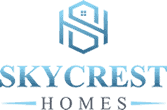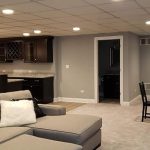How Much Does A Home Addition Cost In Chicago?
The housing market in Chicago has experienced remarkable growth in recent years, making it an appealing choice for homeowners seeking to invest in their property. However, relocating is not always a viable option, leading to a rise in the popularity of residential expansions. Home expansions offer the opportunity to enhance both the value and functionality of a property, often proving to be a cost-effective alternative to purchasing a new home. In this article, we will explore the factors that affect the cost of Home Additions In Chicago.
The Basics of Home Expansion Costs:
Expanding Your Home with Beautiful Additions comes in many forms, from room extensions to second-story additions, bump-outs, and sunrooms. The type of addition you choose will have a significant impact on the final cost. For example, a room extension will generally be less costly than a second-story addition. According to Home Advisor, the average cost of a Home Addition in Chicago is between $40,000 and $140,000.
Location and Neighborhood:
Location and neighborhood are significant factors that affect the Costs of adding an extension to your home. The cost of permits can vary across the city, with some areas commanding higher fees than others. For example, permits for Home annexes in historic or landmark districts often come with special requirements and higher fees. Additionally, the cost of construction materials and labor can vary depending on the neighborhood. Homeowners should research the average costs in their area to get a better understanding of what they can expect to pay.
Size and Scope of the Project:
The size and scope of the project will also affect the final cost. The most significant factor is square footage, as the more square footage added, the higher the cost. The type of room being added will also impact the cost. For example, adding a new bedroom will generally be more costly than adding a bathroom or kitchen. Homeowners must consider their needs and budget when determining the size and scope of their project.
Design and Architecture:
Homeowners must consider the design and structure of their living space extensions. Hiring a designer or architect will add to the overall cost, but it can be crucial in ensuring the addition matches the existing structure. Special design considerations, such as traditional or modern, luxury or basic, will also impact the final cost. Homeowners should research and hire a professional who can help guide them through the design process.
Materials and Finishes:
The materials and finishes used in the addition will impact the final cost. Standard materials and finishes will be less expensive than high-end options. Homeowners must consider their budget and needs when choosing materials and finishes.
Labor and Contractor Fees:
Labor costs will vary in Chicago depending on the contractor and the job’s complexity. It is essential to choose a reputable contractor who can provide a detailed estimate of the labor costs. Additional fees may be charged for project management and subcontractors, depending on the size and scope of the project.
Utility Connections and Infrastructure:
Adding to or extending the plumbing, electrical, and HVAC systems will be an additional cost. Upgrades or reinforcements may also be required for existing systems. These costs will vary depending on the project and the existing systems.
Permits, Inspections, and Regulations:
Chicago has a permitting process homeowners must navigate when adding onto their homes. The permit fees will vary depending on the location and scope of the project. Inspections may be required throughout the process, and unexpected delays may be encountered. Homeowners must ensure they are aware of the regulations governing the permit process to avoid any unforeseen costs.
Unforeseen Challenges:
Homeowners must also be prepared for unforeseen challenges that may arise during the project. For example, foundation issues or hidden damage may be discovered during renovation. These unexpected problems can escalate the final cost of the project, so it is essential to have a financial buffer to address these challenges.
Financing and Budgeting:
There are various financing options available for homeowners looking to extend their living space. Home equity loans, home equity lines of credit, and personal loans can all be viable choices. It is essential to stick to the budget, so homeowners should collaborate closely with their contractors to ensure the project remains within financial limits. Allocating additional funds to address unforeseen challenges can also be beneficial.
Customization and Personal Preferences:
Property extensions or expansions provide homeowners with a unique chance to tailor and transform their living space according to their preferences. This customization has the potential to significantly enhance a property’s value, albeit at a higher cost. Therefore, homeowners should conscientiously deliberate on their personal preferences, giving due importance to their needs while making decisions regarding design, materials, and finishes.
Return on Investment: Property extensions can add value to a property, but homeowners must also consider the return on investment (ROI). While it may seem like a cost-effective solution to add to a home, homeowners must carefully weigh the potential increase in property value against the total cost of the project. It is essential to research and consult with real estate professionals before making a decision.
Eco-Friendly and Sustainable Additions: With the growing importance of environmental sustainability, homeowners may opt for eco-friendly and sustainable living space extensions. These types of additions can add significant upfront costs, but they may also save money in the long run through energy efficiency and lower utility bills. Additionally, these types of additions can also benefit the environment. Expanding your home adds value and functionality, often at a lower cost than buying a new one. Factors like location, size, design, materials, labor, permits, and unforeseen challenges affect the final cost. Research and collaborate closely with contractors to establish a realistic budget and ensure timely completion. For accurate estimates, consult local experts in Chicago. Contact a reputable home builder / contractor to discuss your needs, and budget, and transform your home.




